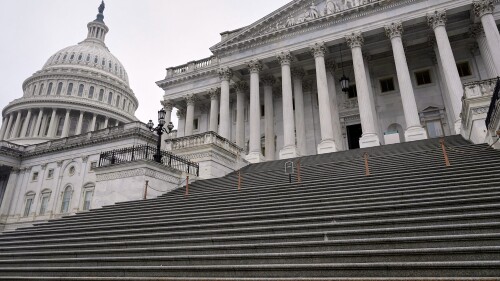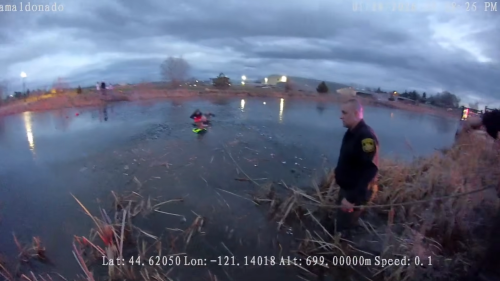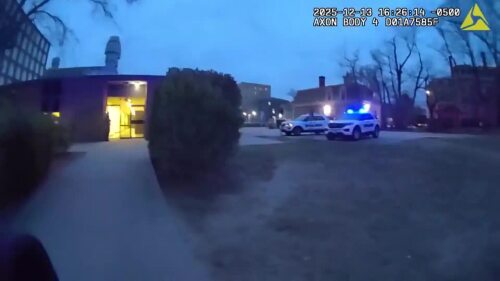WASHINGTON — As part of a sweeping federal intervention into Washington, D.C.’s public safety landscape, President Donald Trump announced his administration’s intent to reverse criminal justice policies that he says have led to “total lawlessness” in the nation’s capital.
In a press conference on Aug. 11 that followed his executive order placing the D.C. Metropolitan Police Department under federal control, Trump and his team outlined targeted reforms aimed at bail policies, juvenile crime prosecution and recruitment support for law enforcement agencies.
| READ NEXT: Federal surge in D.C.: How it works and the history behind it
The president characterized the moment as “Liberation Day in D.C.,” vowing to clean up the streets through enhanced policing, stronger judicial accountability and new federal support for prosecuting both adult and juvenile offenders.
Executive orders invoke federal authority
According to a fact sheet released by the White House, Trump signed two executive actions:
- A Presidential Memorandum directing the Secretary of Defense to mobilize the District of Columbia National Guard, with no defined end date
- A statutory notification under Section 740 of the D.C. Home Rule Act, giving the federal government control over the Metropolitan Police Department
The administration argues that public safety in Washington, D.C. has deteriorated to such an extent that it threatens not just local residents, but the peaceful functioning of the federal government itself.
| SURVEY: What’s the best shift length for policing? We want your input
The memo points to a string of violent incidents near Capitol Hill, including the shooting of a congressional intern, a fatal carjacking of a former administration official and the beating of a federal employee by what officials described as a “roving mob.”
“Washington, D.C. is a federal city because it is the seat of our Nation’s government,” the fact sheet reads. “Violent crime that prevents Federal workers from safely performing their duties … is a threat not just to the city, but to the Nation.”
What is Section 740, and why does it matter?
Under Section 740 of the District of Columbia Home Rule Act, the president has the authority to take emergency control of the Metropolitan Police Department when “special conditions of an emergency nature” arise that require law enforcement for federal purposes.
This section gives the president the ability to direct the mayor to deploy D.C. police for up to 48 hours. If the need continues beyond that, the president must notify Congress with an explanation and a timeline. The deployment must end once:
- The emergency ends,
- 30 days have passed, or
- Congress votes to terminate it through a joint resolution.
If Congress is out of session, the law allows the deployment to extend until 30 days after lawmakers reconvene.
This provision, rarely invoked, reflects D.C.’s unique status as a federal city. In this case, Trump cited ongoing violent crime and a breakdown in public safety to justify invoking the measure. He also announced that Attorney General Pam Bondi will assume command of the Metropolitan D.C. Police Department, while DEA Administrator Terry Cole has been appointed interim federal commissioner to lead the department during the transition.
Ending no cash bail
Among the administration’s stated priorities is the elimination of no cash bail policies, which Trump called a “disaster” that “started the problem in New York and Chicago.” He pledged to work with congressional Republicans to reverse such policies in D.C. and in other cities that may follow.
“Somebody murders somebody and they’re out on no cash bail before the day is out,” Trump said. “We’re going to change the statute.”
Bondi echoed that goal, adding that the administration would hold prosecutors and judges publicly accountable for releasing violent offenders.
Juvenile crime and sentencing reform
U.S. Attorney Jeanine Pirro, tapped by the administration to spearhead juvenile justice reform in the district, expressed frustration with the current limits on prosecuting minors. Pirro cited examples of teens committing violent acts — including assault and homicide — with minimal consequences.
“They go to family court and they get to do yoga and arts and crafts,” Pirro said. “Enough. It changes today.”
Pirro pointed to the case of a teen convicted of shooting someone on a bus who was later sentenced to probation and encouraged to attend college. She vowed to push back against what she termed “absurd” D.C. Council laws that prevent adult penalties for violent juvenile offenders.
The administration has also signaled that it will push for legislation allowing prosecutors to charge juveniles as young as 14 as adults. On his Truth Social platform, Trump wrote:
“The law in D.C. must be changed to prosecute these ‘minors’ as adults, and lock them up for a long time, starting at age 14.”
He added that many young offenders are emboldened by the current system:
“They are not afraid of Law Enforcement because they know nothing ever happens to them, but it’s going to happen now!”
Days before Trump’s announcement, Rep. Byron Donalds reintroduced the DC CRIMES Act (D.C. Criminal Reforms to Immediately Make Everyone Safe Act), which seeks to lower the upper age limit for youth offender status in the District of Columbia from 24 to 18. The bill also includes provisions to prohibit the D.C. Council from reducing existing criminal sentences and requires the district’s attorney general to publish detailed, publicly accessible data on juvenile crime.
Empowering police, prosecutors and judges
The administration emphasized a return to what they called “letting good cops be cops.” Officials said enforcement operations will be backed by federal prosecutors, FBI agents and DOJ resources that can pursue stiffer penalties.
“We’re going to support law enforcement not just in word, but in action,” said FBI Director Kash Patel. He highlighted efforts in Northern Virginia as a model, where 545 violent felons were arrested in one month following a task force initiative.
The administration also previewed plans to appoint new federal judges in the district, specifically targeting bench vacancies that could shift sentencing norms. Trump criticized judges for releasing violent offenders and said new appointments would reflect a tougher-on-crime posture.
Law enforcement staffing and strategy
While D.C. police reportedly have 3,500 sworn officers, Trump questioned the need for additional recruiting, saying the city already has “an army” of officers and what’s needed is stronger leadership and clearer rules of engagement.
“We need rules and regulations and the right people to implement them,” he said. “And we have them.”
Bondi said the new federal command structure will oversee MPD operations, with additional support from federal agencies including the ATF, Secret Service and Department of Homeland Security. U.S. Marshal Gadyaces Serralta will coordinate interagency efforts as part of the federally directed law enforcement response.
Looking ahead
Trump made clear that the intervention in D.C. could serve as a model for other cities. He namechecked Chicago, Los Angeles, New York and Oakland as potential next targets if local conditions do not improve.
“We’re not looking to take years, because a lot of people die in years,” Trump said.
The administration’s actions — both in terms of direct control and broader policy proposals — signal a more active federal role in urban crime response.
Do you believe current laws give law enforcement the tools needed to address violent crime effectively? Why or why not?
Police1 readers respond:
- Depending on the locale or jurisdiction, law enforcement often lacks the tools to effectively address crime and violent crime. Policies such as no-bail release, little to no enforcement or legal repercussions for juveniles, and granting youthful offender status to individuals over 18 undermine accountability. Additional challenges include sentencing reductions, early parole, and administrations that demonize or defund officers and agencies.Other obstacles include serious understaffing, local ordinances restricting operations, mandates requiring burdensome paperwork, and a lack of understanding or support from administrations, the public, and the media. Prosecutorial and judicial indifference, self-imposed restrictions on criminal prosecutions, and judges issuing minimal sentences or outright dismissals further weaken enforcement efforts.
- The laws are already in place, we just need LE to be able to enforce them, our prosecutors to move forward and the elimination of sanctuary cities as well as holding all criminal behavior regardless of age or social and mental status accountable. No more turning the other cheek, let’s get serious about crime, including military action against other countries criminals who are funneling drugs to to our country.
- We work hard, follow the laws, and protect the rights of the accused as well as the victims. Judges and DAs seem not to care about the victims, only about getting the best deal for the accused. Irritating.
- Not yet, but I feel like it is starting to improve with some of the new things we’re starting to see.
- Good for President Trump. Enough is enough. In my area, we just had a vicious criminal kidnap a mother and her children, made her drive him to a bank, which he robbed, and he stabbed the poor woman. This animal, a repeat offender, had been released on shock probation by a liberal district court judge. This trap has to stop!!!
- No, not at all. Laws are too soft, as are DAs and judges.
- The Washington State Legislature took law enforcement tools away from law enforcement. The City of Seattle prevents police from enforcing traffic laws, including equipment violations.
- When you handcuff the police and coddle the criminal, you get Washington, D.C. But it’s not just Washington — look at our major cities and you’ll see the same policies destroying them as well.







